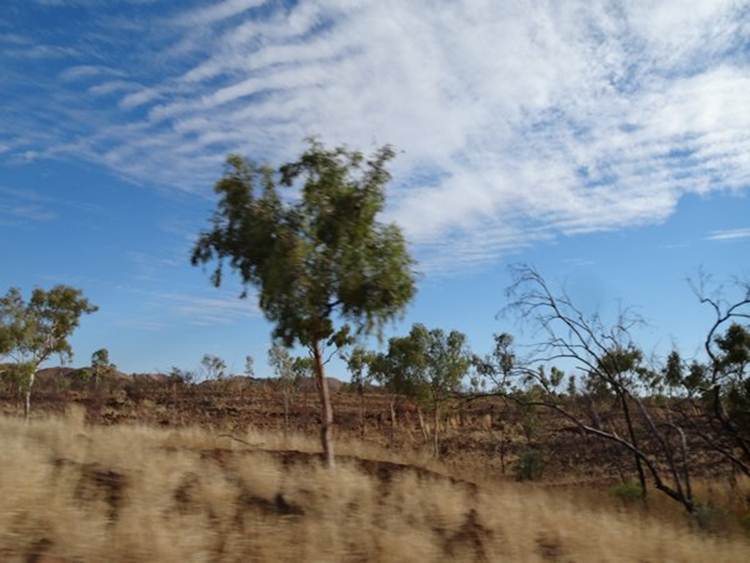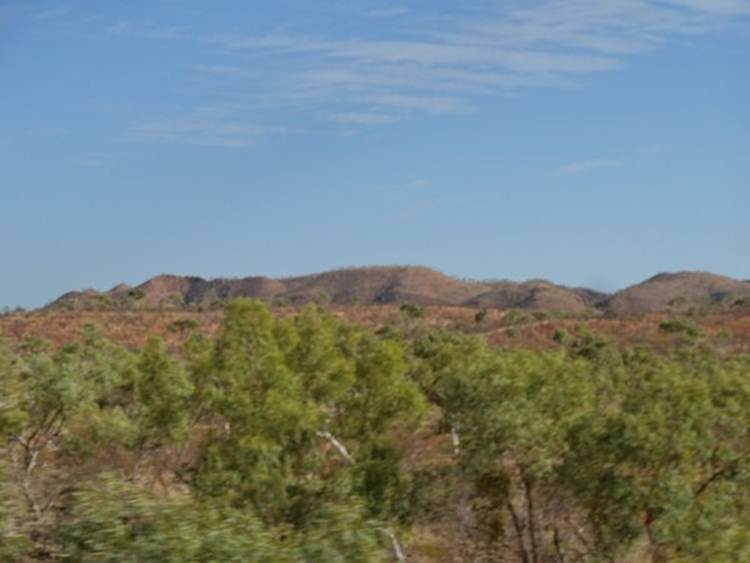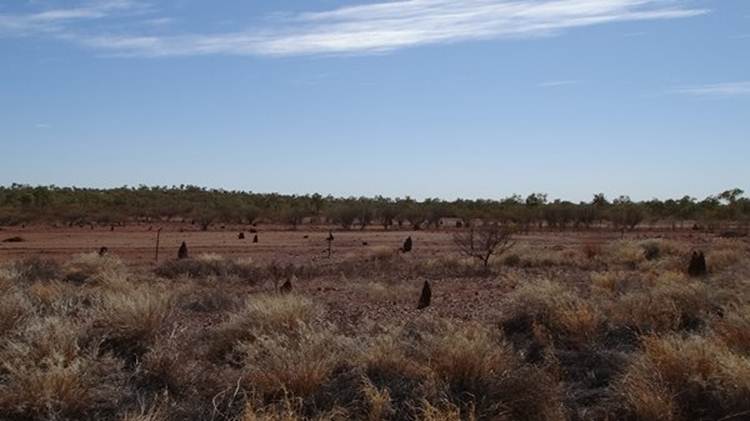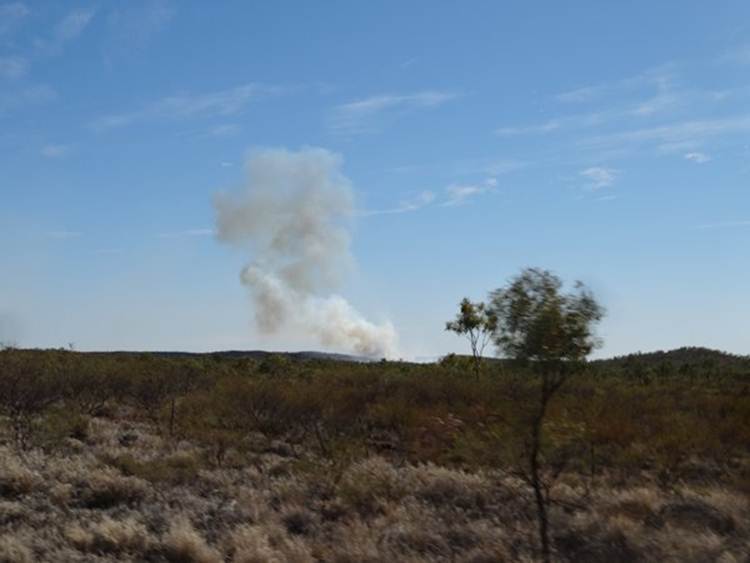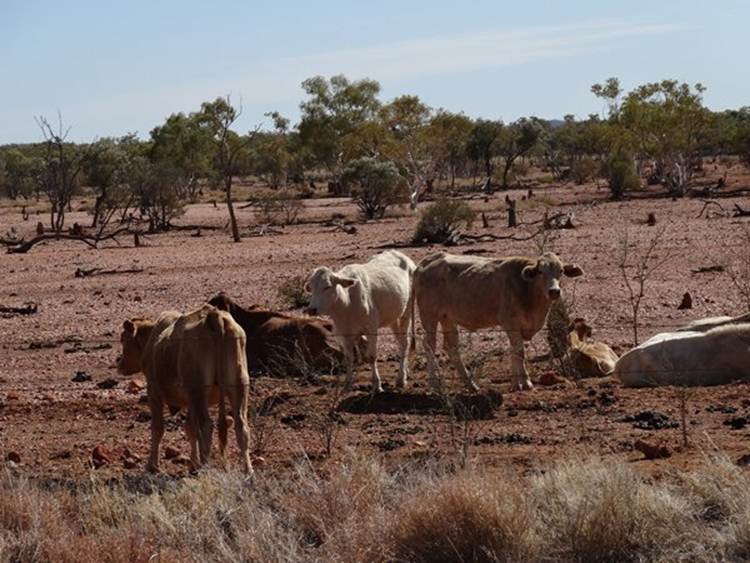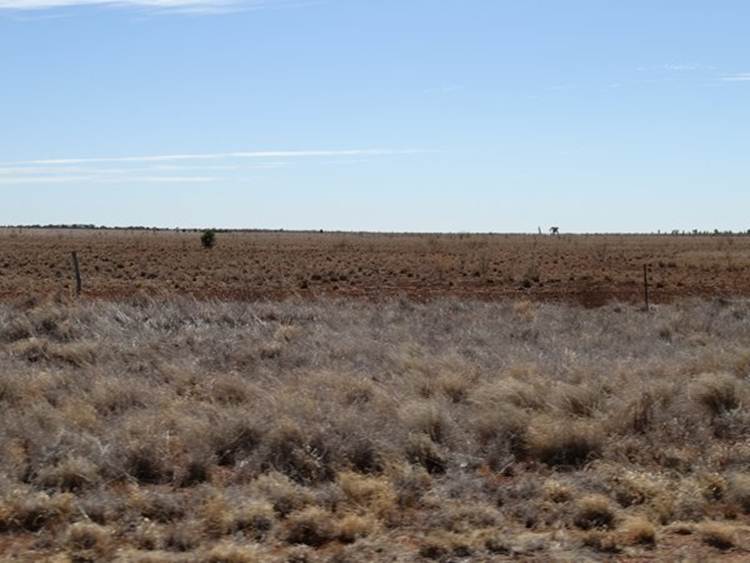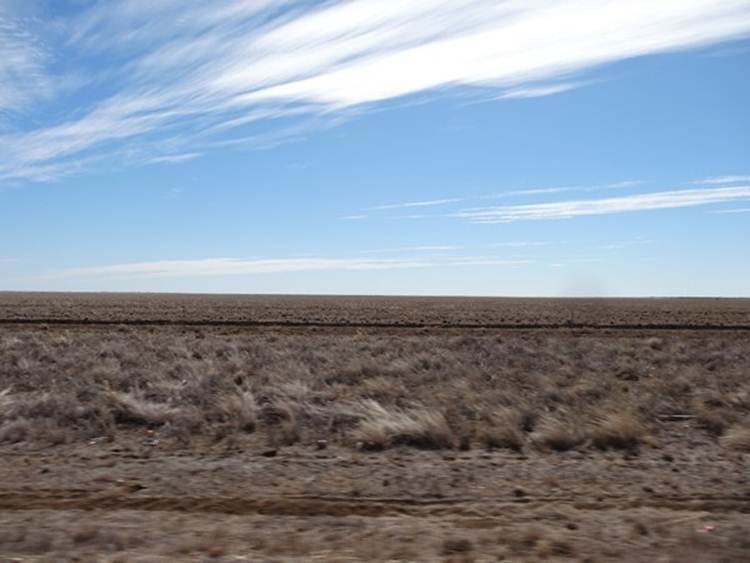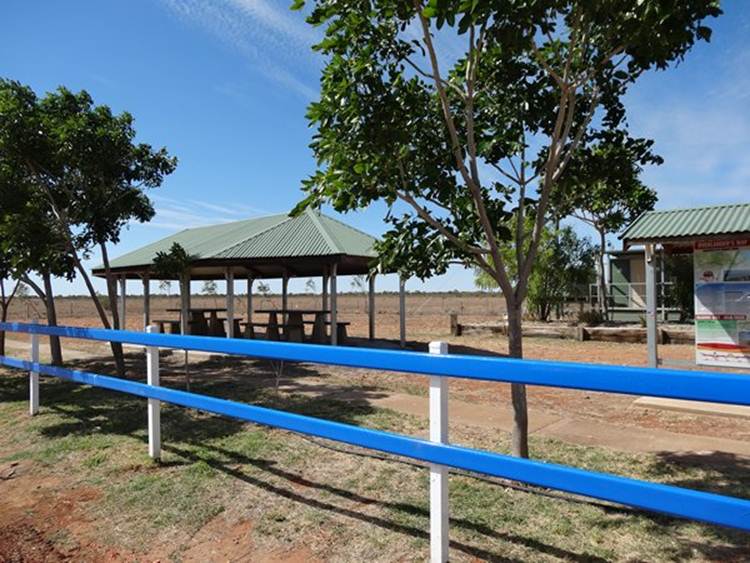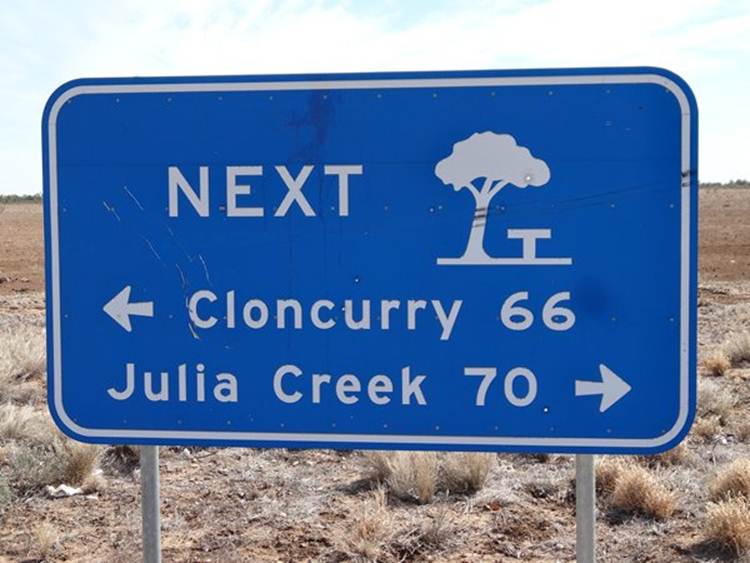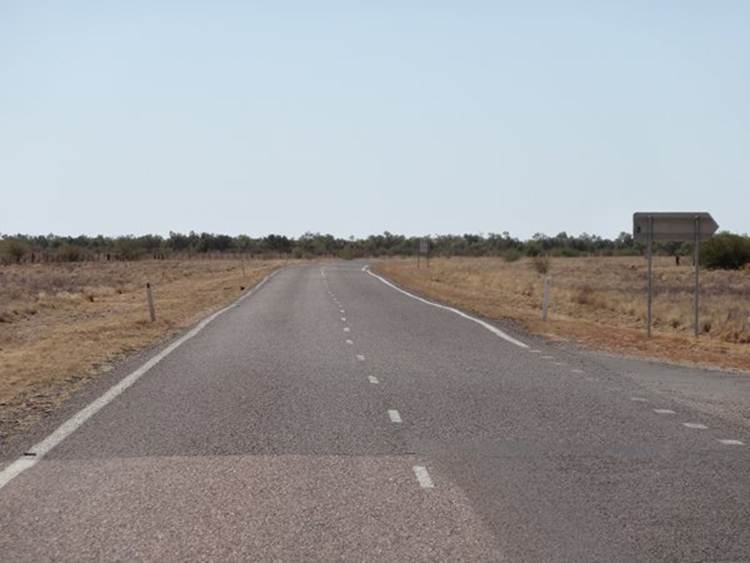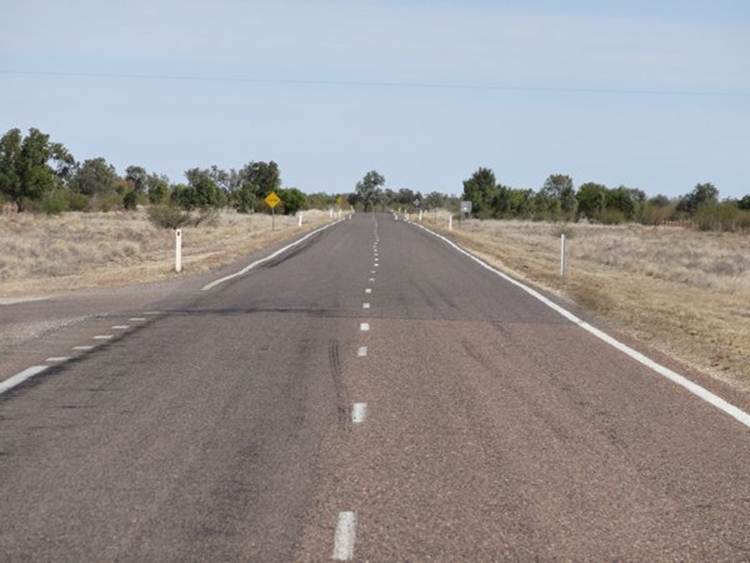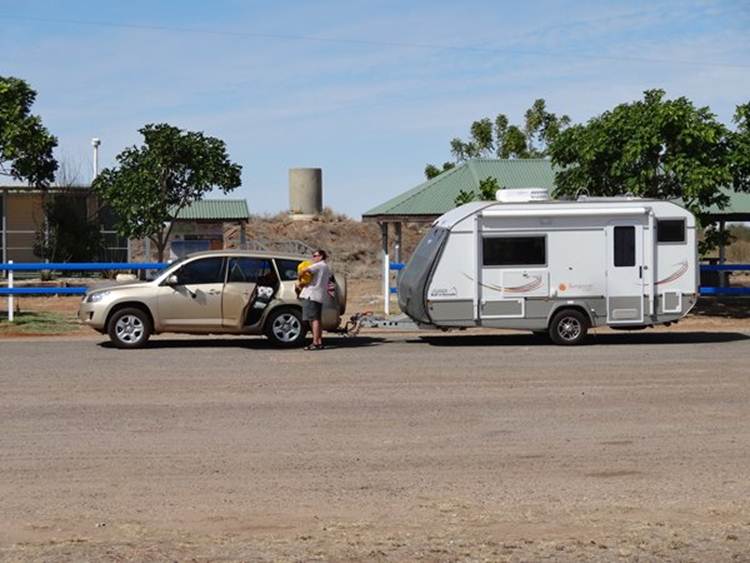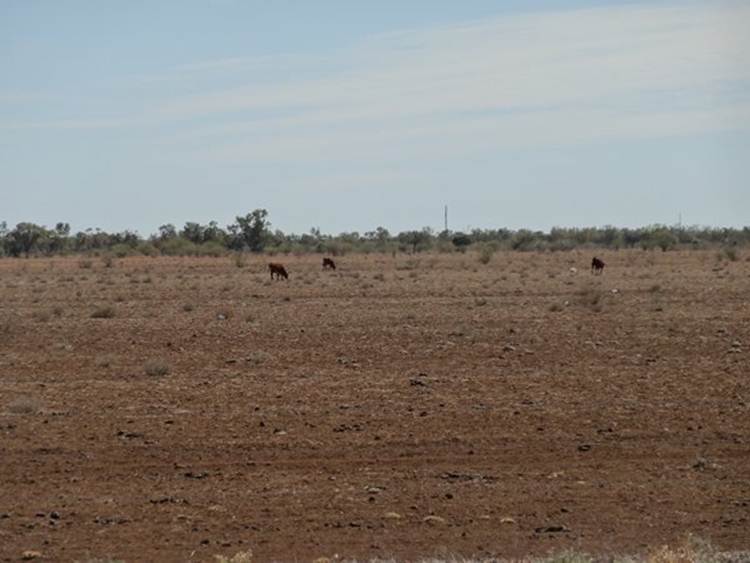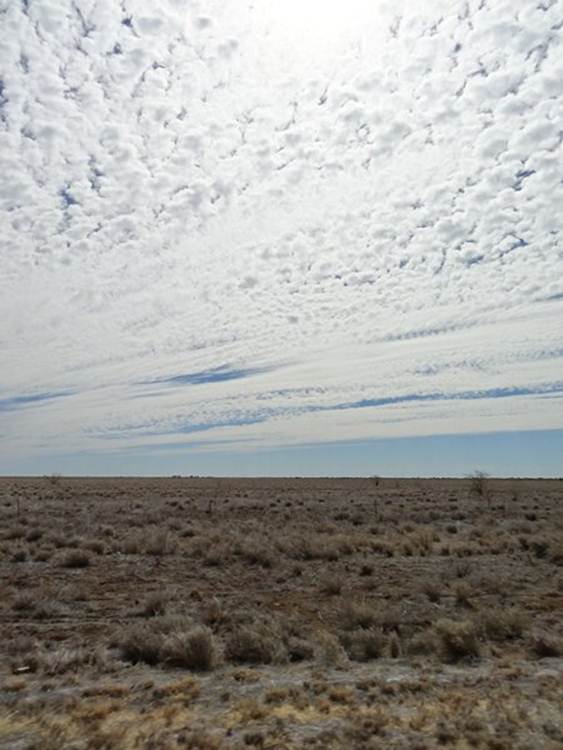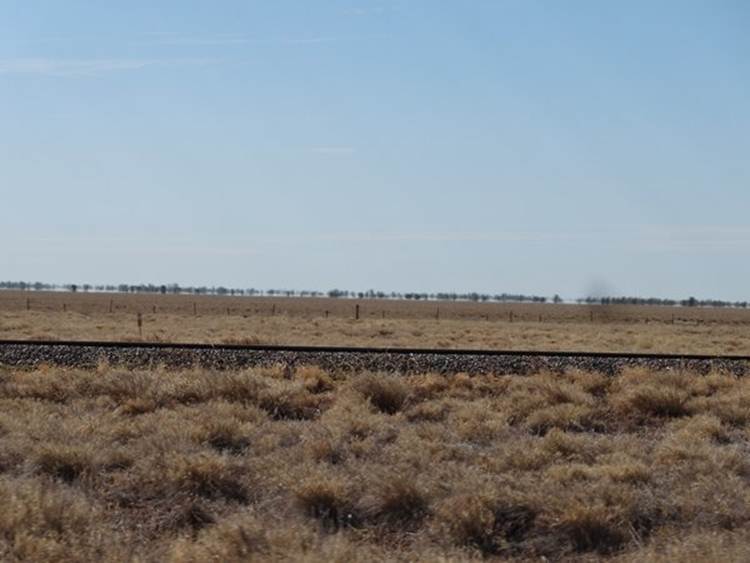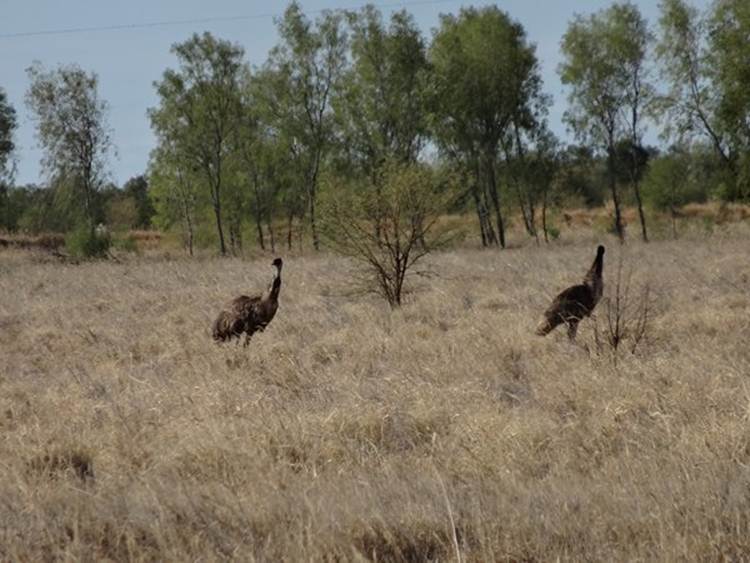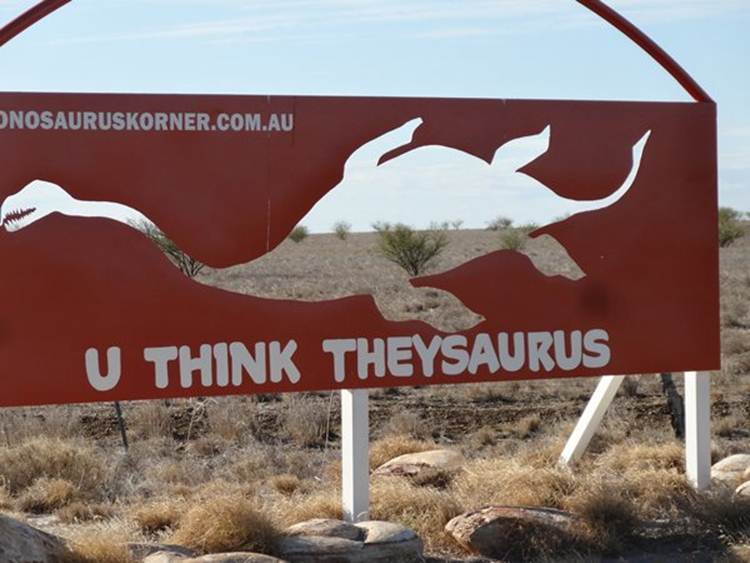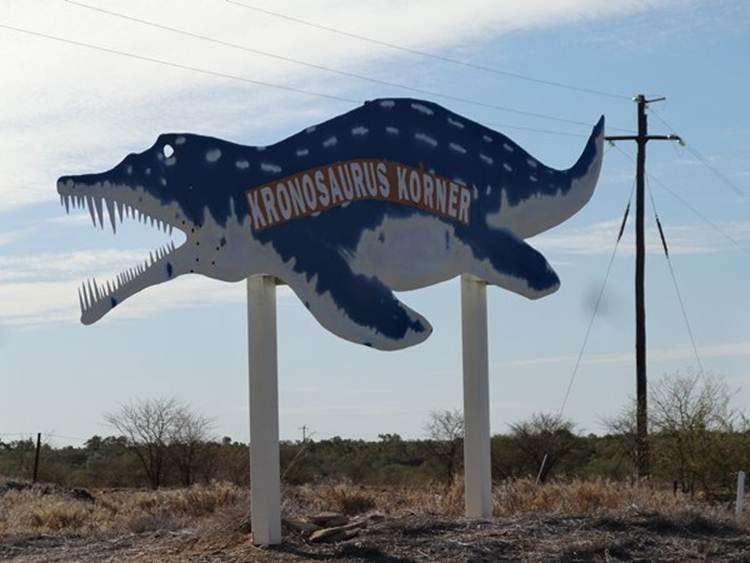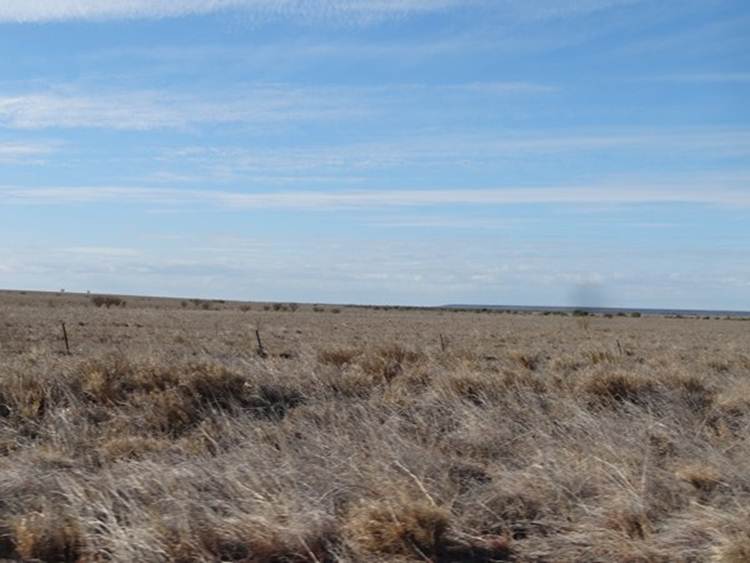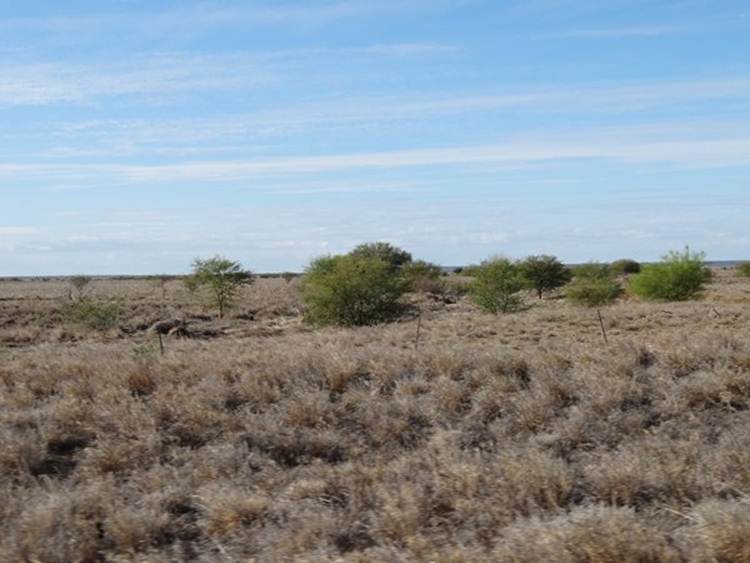Road trip to Townsville - Hughenden

Position 20 50.95S 144 11.77E So it’s more scenery:
Some trees and ranges.
Still got termite or ant mounds every now and again.
A fire in the distance
The ground is really dry. Mount Isa and district has been declared drought area as they have had little rain for the past 3 years. The cattle have little to eat, we saw several browsing the branches of the trees.
Grasslands.
A railway line !!
Nice shady rest stop.
Between Cloncurry and Julia Creek.
Road to Julia Creek
Which looked exactly like the road from Cloncurry
Paul fuelling the car
We are travelling on the Overlanders Way between Tennant Creek and Townsville. A 1650km highway that goes all through Queensland and into Northern Territory. The road follows a cattle droving route and we are now in the middle of cattle country. 25 km east of Mount Isa we entered McKinlay Shire. It covers some 40,728 square kilometres and has 4 main towns: Julia Greek, Neilia, McKinlay and Kynuna. And the reason I’m telling you this is that the total population is 1,000 people. It’s cattle sheep and mining county.
Bit more grass, nice sky though
Some shrubs shimmering in the background
Some emu’s
On the way to
We are in dinosaur country now, an inland sea occupied this area 95 million years ago and he are is famous for its fossils, some of which you can see at
And on to Hughenden. More grass and cattle ……
But a bit more greenery
|
